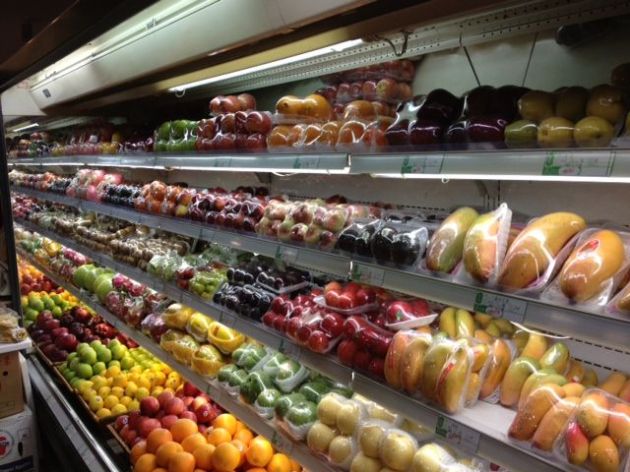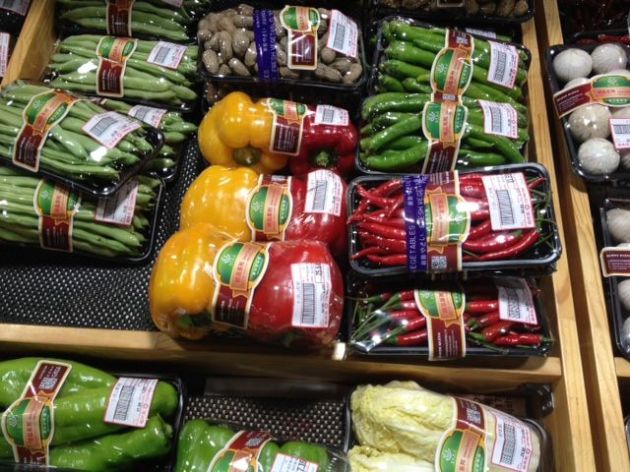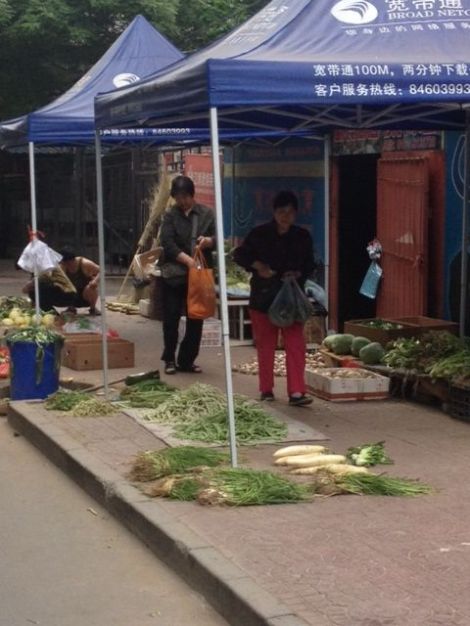Diferencia entre “seguridad alimentaria” e “inocuidad alimentaria”. Los periodistas empleamos ambos términos de manera indistinta, pero hay un matiz que los diferencia y que me llevará a partir de ahora a utilizar más a menudo el término “inocuidad” en lugar de “seguridad”. En inglés se usa food safety, que viene a ser en su traducción “seguridad alimentaria”. Pero cuando la FAO (Organización de las Naciones Unidas para la Agricultura) nombra la “seguridad alimentaria” se refiere al derecho de las personas a asegurarse una cuota alimentaria para sobrevivir. Sin embargo, en el contexto del sector hortofrutícola, en español lo correcto sería hablar de “inocuidad alimentaria”, esto es, alimentos que son inocuos para la salud de las personas.
Pues bien, tengo un buen amigo que por su trabajo como profesional para una gran firma de la agroalimentación se pasa media vida viajando. Es una especie de Willy Fog. Resulta que en su último viaje a China, de hace solo unos días, pudo comprobar in situ la gran preocupación que en el gigante asiático existe por mejorar su imagen de cara al exterior, en cuestión de “inocuidad alimentaria”. Sobra decir que China tiene el triste honor de encabezar la mayoría de los informes relacionados con alertas sanitarias en el planeta. Por ese motivo y por el hecho de que este país tiene el propósito de aumentar sus exportaciones, de todo tipo, al resto del mundo han comenzado a hacer los deberes. Y para ello han empezado a invertir en protocolos para poder estampar en sus producciones las normas de calidad más exigentes. Habrá que esperar aún algún tiempo para comprobar si esta tendencia es real o solo puro marketing de cara al mercado.
Lo cierto es que hoy día en las ciudades chinas conviven los contrastes más extremos. Como se aprecia en estas fotografías, tomadas la semana pasada, en una misma localidad se pueden encontrar frutas y verduras vendidas en la calle, expuestas sobre una acera y sin los controles mínimos a los que estamos acostumbrados en los países de la Unión Europea; y al mismo tiempo, en el mismo barrio es posible hallar lineales con frutas y hortalizas perfectamente envasadas, etiquetadas y con su control de trazabilidad. Una de estas otras imágenes bien pudiera ser la sección de productos frescos de El Corte Inglés, sin embargo, es un lineal de una tienda china de gourmet.
Todo esto ocurre en el país más poblado del mundo, donde la libertad en Internet no es posible, donde las redes sociales están controladas y algunas prohibidas, y donde la censura no acaba. Escribir estas líneas y publicar estas fotos es intentar abrir una pequeña ventana, aún a riesgo de romper algunos cristales.
China and “food harmlessness”
Difference between “food safety” and “food harmlessness”. We journalists employ both terms indistinctly, but there is a nuance that differences them and that from now on will make me use more often the term “harmlessness” instead of “safety”. In English we use “food safety”, in the sense of “food security”. But when the FAO (Food and Agriculture Organization of the United Nations) speaks about “food safety” it refers to the right of people to secure themselves a quota of food to survive. However, in the context of the fruit and vegetable sector, in Spanish the right thing would be to talk of “food safety” (inocuidad alimentaria), that is, foods that are harmless to the health of people.
Well, I have a good friend who due to his work as a professional for a big agrofood firm spends half of his life traveling. He is a sort of Willy Fog. It turns out that on his last trip to China, just a few days ago, he could note in situ the great concern that exists in the Asian giant to improve its image for the outside world in terms of “food harmlessness”. Needless to say, China has the sad honor of leading the majority of the reports related to health warnings on the planet. For that reason and for the fact that this country is intended to increase its exports, of all types, to the rest of the world they have begun to do what they have to. And for this, they have begun to invest in protocols to be able to print on their productions the most demanding quality standards. We will have still to wait some time to see if this trend is real or just pure marketing for the market.
The truth is that today in Chinese cities the most extreme contrasts live together. As it can be seen in these pictures taken last week, in the same locality you can find fruits and vegetables sold in the street, exposed on a sidewalk and without the minimum controls to what we are used in the countries of the European Union. And at the same time, in the same neighborhood it is possible to find shelves with fruits and vegetables perfectly packaged, labelled and with their traceability control. One of these other images may well be the fresh products section of El Corte Ingles. However, it is a shelf of a gourmet Chinese shop.
All this happens in the most populous country in the world where Internet freedom is not possible, where social networks are controlled and some of them prohibited, and where censorship does not finish. Writing and publishing these photos is a way of trying to open a small window, even at the risk of breaking some glass.














Creo que en nuestro país también se dan estos contrastes: tiendecitas de barrio o de pueblo donde encuentras productos de huertas particulares sin ningún tipo de control higienico-sanitario (o alimentario) y grandes supermercados con todo envasado y (teóricamente) controlado. ¿No lo crees así?
en Europa y concretamente en países como España, Portugal e Italia, tendríamos mucho que callar y esconder